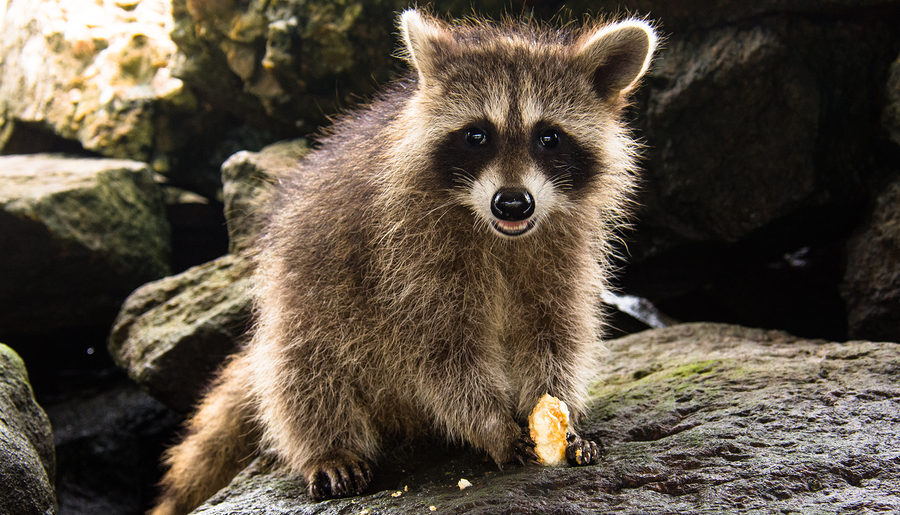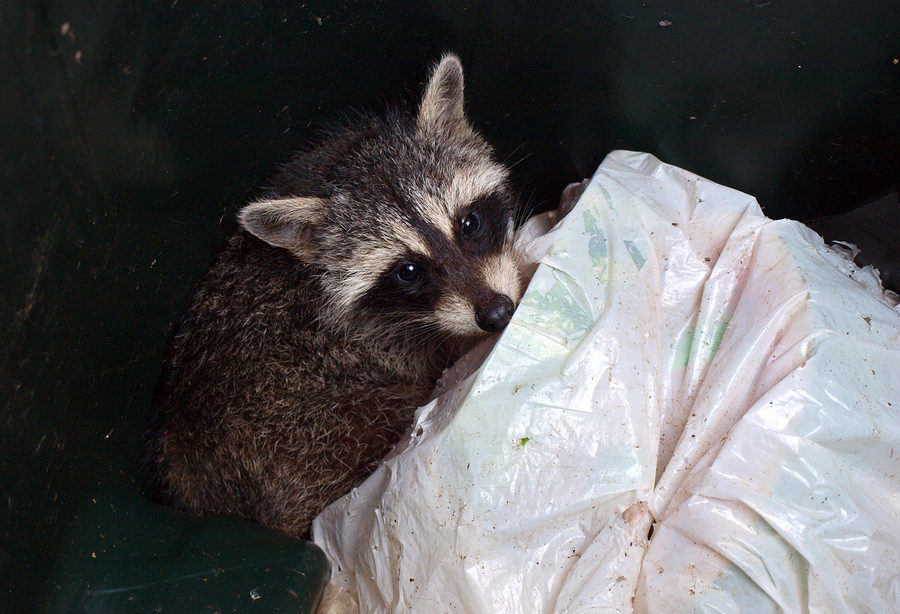A raccoon could easily be considered one of the most commonly seen species of mammal in Indiana. This is because the state’s raccoon population is on the rise; and has been since the early 1940’s. Wild raccoons are a vital part of our natural environment and ecosystem; but should be admired from afar. Apart from their natural instinct to cause trouble and make messes, these mammals are common carriers of contagious diseases and illnesses, like Roundworm.
Continue reading to learn more about raccoons and roundworm, and how they can also put humans and pets at risk.

Baylisascaris Procyonis
The raccoon roundworm parasite is scientifically known as Baylisascaris Procyonis and is related to the canine roundworm species. This large-worm parasite is generally found in the small intestines and affects more than half the North American raccoon population. The mature form of the worm is not harmless to raccoons, but the larval stage can be deadly to humans and other animals. Once infected, there is no cure; which is why prevention, knowledge, and safety are key factors for protecting your family and pets against deadly parasites like roundworm and more.
A female roundworm can lay hundreds of thousands of eggs inside an adult raccoon per day! These eggs are subsequently shed in their fecal matter which is where one threat is commonly imposed. Ingesting this diseased matter can immediately infect a dog, cat, bird, or other small animal. This is another reason why pet vaccinations are so imperative for dog and cat owners. On the subject of ingestion, this parasitic infection can also be spread through contaminated soil, water, hands, feet, and even hair.
If the larva of a raccoon roundworm is ingested, the eggs immediately penetrate the walls of the small intestine, and head straight for the central nervous system. Depending on the amount of eggs ingested, the severity of the symptoms and condition will differ from case to case. The infection eventually causes blindness, paralysis, and neurological disease. It is an unforgiving fate for any mammal, including humans. If the illness is not fatal, it is highly debilitating and devastating.
Raccoon Roundworm Prevention
The best way to prevent the possibility of raccoon roundworm infection is to eliminate any potential raccoon colonies near your home or office. When it comes to residential neighborhoods, raccoons are attracted to yards with food and water sources. Things like dog and cat food, water bowls, trash cans, compost bins, kiddie pools, gardens will appeal raccoons on a nightly basis.
These are intelligent animals and can remember which houses have food and water, and which have shelter and other desirable qualities. It is recommended to remove trash, garbage cans, pet food, bird feeders, and other food sources from outdoor areas. Keeping these items behind closed doors will thwart raccoons from entering on your property.
If you find that you are experiencing a raccoon problem on your property, call your local animal control company for professional assistance. It is never necessary to kill raccoons, unless for food and hunting purposes. Be sure to use a trusted company that believes in safe and humane strategies for raccoon control and removal. Ask for references, licenses, and company background information to get a better idea about the company you intend to hire.
Who to Call for Louisville Raccoon Control
Call us today at 502-553-7622 for professional Louisville raccoon control services today. We offer a wide range of services for residential and commercial properties, including raccoon removal, control, prevention, proofing, cleanup, attic restorations, and more. Call 502-553-7622 to request a free estimate or information about Louisville raccoon control, today.



